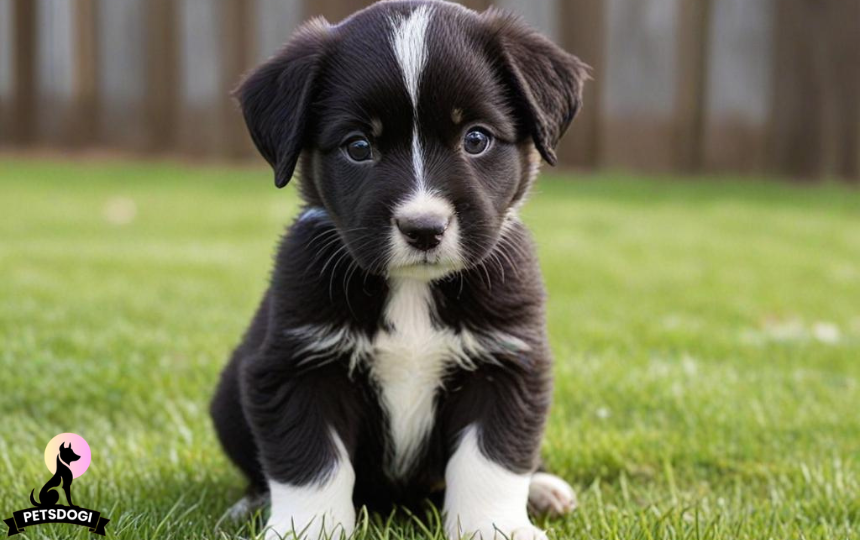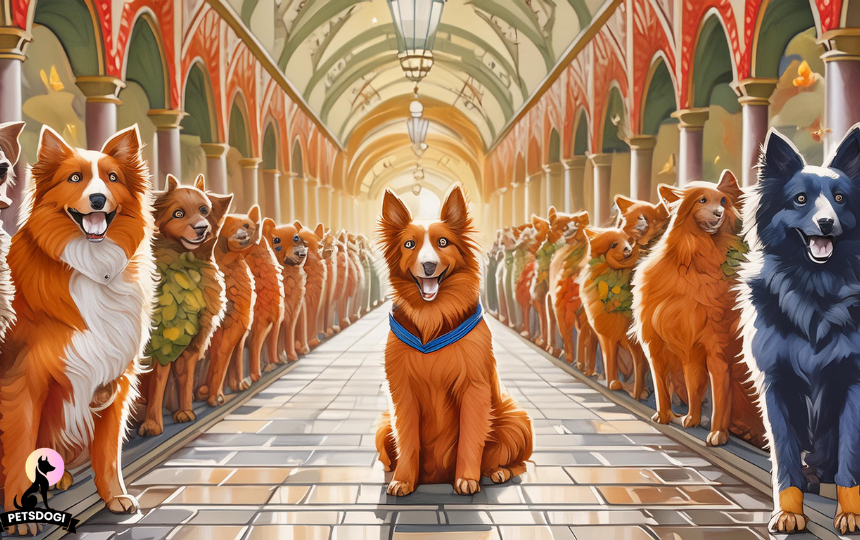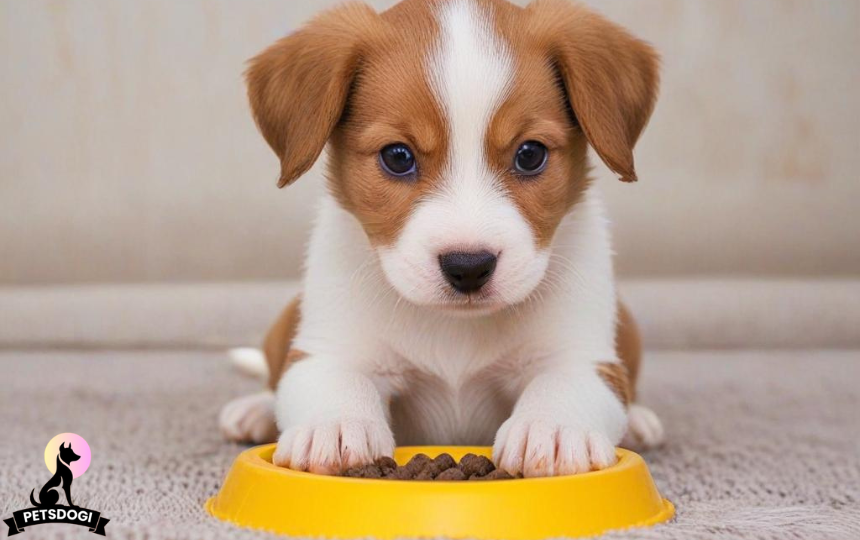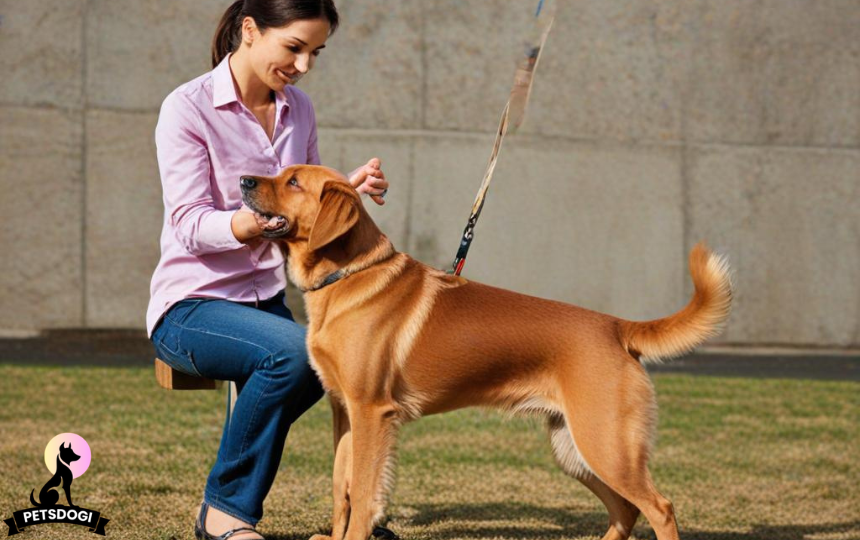Welcome to our in-depth guide to becoming an expert puppy trainer! Whether you’re a first-time puppy parent or have some experience with the care of young animals, this blog post will assist you in creating a successful home training regimen for your animal friend. Important subjects like the value of puppy training, establishing a happy learning environment, teaching fundamental commands, socialisation and behaviour management, handling typical behavioural problems, and organising a daily training schedule will all be covered in this post. We’ll also talk about how play and exercise fit into your dog’s training regimen and how to consistently praise good behaviour. Finally, we’ll provide advice on how to troubleshoot and modify your schedule as necessary.
Introduction: Understanding The Importance Of Puppy Training
A new pet’s puppy training is an essential part of pet ownership. It builds good manners and behaviour, but it also makes your relationship with your animal friend stronger. A happy puppy that has received proper training lays the groundwork for a lifetime of positive behaviours. It’s crucial for responsible dog owners to realise that good training takes time and work, but the benefits are worthwhile. You can train your puppy to become a canine that is respectful and well-mannered with patience and consistency. We’ll go over the value of puppy training in this blog post, along with a thorough home schedule to help you become an expert trainer for your new furry friend.
Establishing A Positive Learning Environment
While it comes to training your puppy, creating a happy and comfortable learning atmosphere is essential. As with people, puppies can learn a great deal more in an environment that is encouraging and supportive. It’s crucial to set up a distraction-free environment for your puppy that is both safe and stimulating and full of praise and rewards. Your puppy will become more trusting of you as a result, which will open their mind to learning new skills. Playtime, treats, and praise are examples of positive reinforcement strategies that will encourage your puppy to learn new skills and reinforce good behaviour. It’s also critical to approach training with consistency and patience. Establishing a conducive learning atmosphere is the first step towards a puppy’s successful home training.
Crate Training And Potty Training
A successful puppy training programme must include both potty training and crate training. By teaching your puppy to hold their bladder until they are allowed outside of the crate, crate training not only helps your puppy learn to potty train, but it also helps you create a safe and comfortable environment for them. When it comes to potty training and crate training, it’s critical to create a schedule. Reward your puppy when they relieve themselves outside and take regular breaks during the day. In both of these training methods, consistency is essential because it enables your puppy to comprehend expectations. With a thorough home schedule that allows for lots of crate time and bathroom breaks.
Teaching Basic Commands
Puppy training requires teaching basic commands because it lays the groundwork for future behaviour and obedience. It takes consistency and positive reinforcement to teach basic commands effectively. Begin by teaching your puppy basic commands like “sit” and “stay,” and when they obey, reward them with toys or treats. As they gain proficiency in these fundamental instructions, you can advance to more complicated ones like “down” or “leave it.” Puppies have short attention spans, so it’s important to keep training sessions brief and enjoyable for them. Your puppy will quickly pick up the fundamentals and be well on their way to becoming a well-mannered dog with persistence, patience, and positive reinforcement.
Socialization And Behavior Management
The two most important aspects of puppy training are socialisation and behaviour management. Exposing your puppy to a variety of people, animals, and environments in a controlled and positive way is known as socialisation. They gain self-assurance, flexibility, and social graces as a result of this. Behaviour management, on the other hand, focuses on teaching your puppy acceptable behaviours and establishing boundaries to stop undesirable behaviour. You can raise a well-rounded and well-behaved puppy who will prosper in a variety of environments by including both socialisation and behaviour management into your training regimen. To lay a solid foundation for your puppy’s adult life, it’s critical to begin socialising them at a young age and to consistently reward desired behaviour. Assisting your puppy in developing into a courteous and compliant friend can be accomplished through persistence, patience, and positive reinforcement methods.
Addressing Common Behavioral Issues
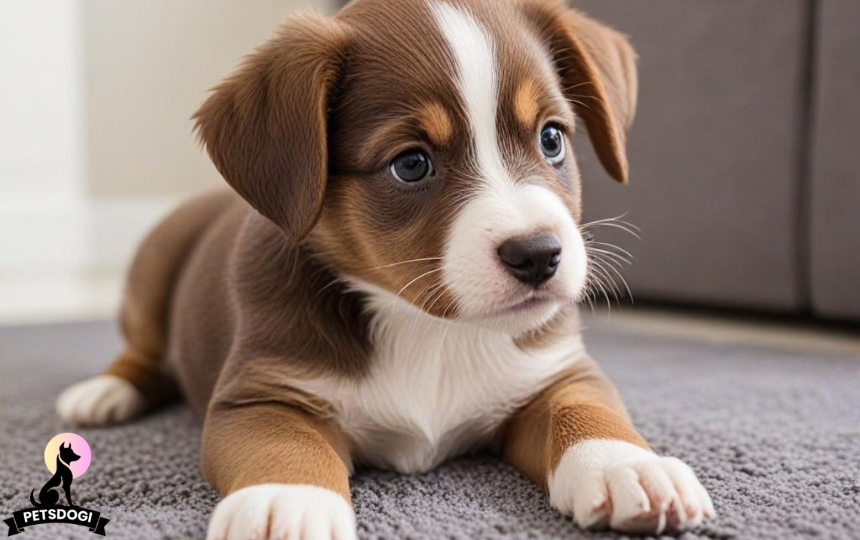
Puppies frequently have behavioural problems, but these can be resolved with the correct guidance and perseverance. One of the most important ways to deal with these problems is to set up a thorough home schedule for your puppy. Regular feeding times, bathroom breaks, playtime, and training sessions should all be incorporated into this schedule. Following this schedule will help your puppy learn boundaries and expectations, which will help stop bad habits like chewing, jumping, and excessive barking. Positive reinforcement for your puppy’s desired behaviour and promptly addressing behavioural issues when they occur can also significantly improve your puppy’s behaviour. You can assist your puppy in learning how to behave and developing into a well-mannered member of your home with persistence and patience.
Setting Up A Daily Training Schedule
Establishing consistency and structure is crucial when creating a daily training schedule for your puppy. This will not only speed up their learning process but also establish a reliable routine for your puppy. First, schedule regular training times for each day, ideally after your puppy has had some exercise and is well-rested. Set aside a space for training that is free from distractions and prepare all the equipment in advance. In order to prevent your puppy from becoming overtired or stressed, remember to incorporate breaks in between sessions. You’ll quickly notice improvements in your puppy’s behaviour and obedience if you establish a regular schedule!
Incorporating Playtime And Exercise Into Training
A key component of optimising your puppy’s learning process is integrating exercise and playtime into training. It not only keeps them mentally engaged and physically fit, but it also enhances their general behaviour. Introducing games such as fetch or hide-and-seek into training sessions is an effective way to integrate playtime while teaching critical commands like “come” and “stay.” These enjoyable exercises help you and your puppy develop a closer bond while reinforcing crucial obedience skills. Furthermore, regular walks or runs with your dog help socialise them with the outside world in addition to giving them physical exercise. You will notice noticeable changes in your puppy’s general behaviour and health if you incorporate playtime and exercise into your daily training regimen.
Continuously Reinforcing Good Behavior
A thorough home schedule with a constant emphasis on rewarding good behaviour is essential for successfully training a puppy. This entails rewarding your puppy on a regular basis for engaging in constructive activities like sitting or going potty outside. Your puppy will learn what is expected of them and be more likely to repeat these desired behaviours if you establish and adhere to a routine. Additionally, it’s critical to train puppies with patience and consistency because they can become confused easily if they get mixed signals. By following this routine, you’ll not only have a well-mannered dog but, with consistent positive reinforcement, you’ll also strengthen your bond with your animal companion.
Troubleshooting And Adjusting The Schedule As Needed
Establishing a timetable for your pet’s training is crucial if you’re a new puppy owner. It’s also important to realise that as your puppy matures, schedules might need to be modified. Every dog is different, with some learning more quickly than others and each having specific needs and personalities. It’s critical to troubleshoot any issues that come up during training and modify the schedule as needed. If something isn’t working, don’t be afraid to try different approaches or make adjustments. Never forget that the keys to a successful puppy’s training are patience and consistency. You can discover the ideal routine that works best for you and your new dog by doing some trial and error!
Conclusion: Celebrating Your Puppy’s Progress
To sum up, acknowledging your puppy’s accomplishments is a crucial aspect of their training process. It is crucial to keep in mind that each puppy develops at their own rate and may experience obstacles during their training. Your puppy’s behaviour will improve significantly if you follow a thorough home schedule and are consistent with your training techniques. Reward and acknowledge your pet for all of their accomplishments, regardless of how big or small they may seem. Remember that training is a continuous process, so as your puppy develops and learns, keep celebrating each new milestone. A happy and well-mannered companion can be developed in your puppy with love, patience, and commitment.

